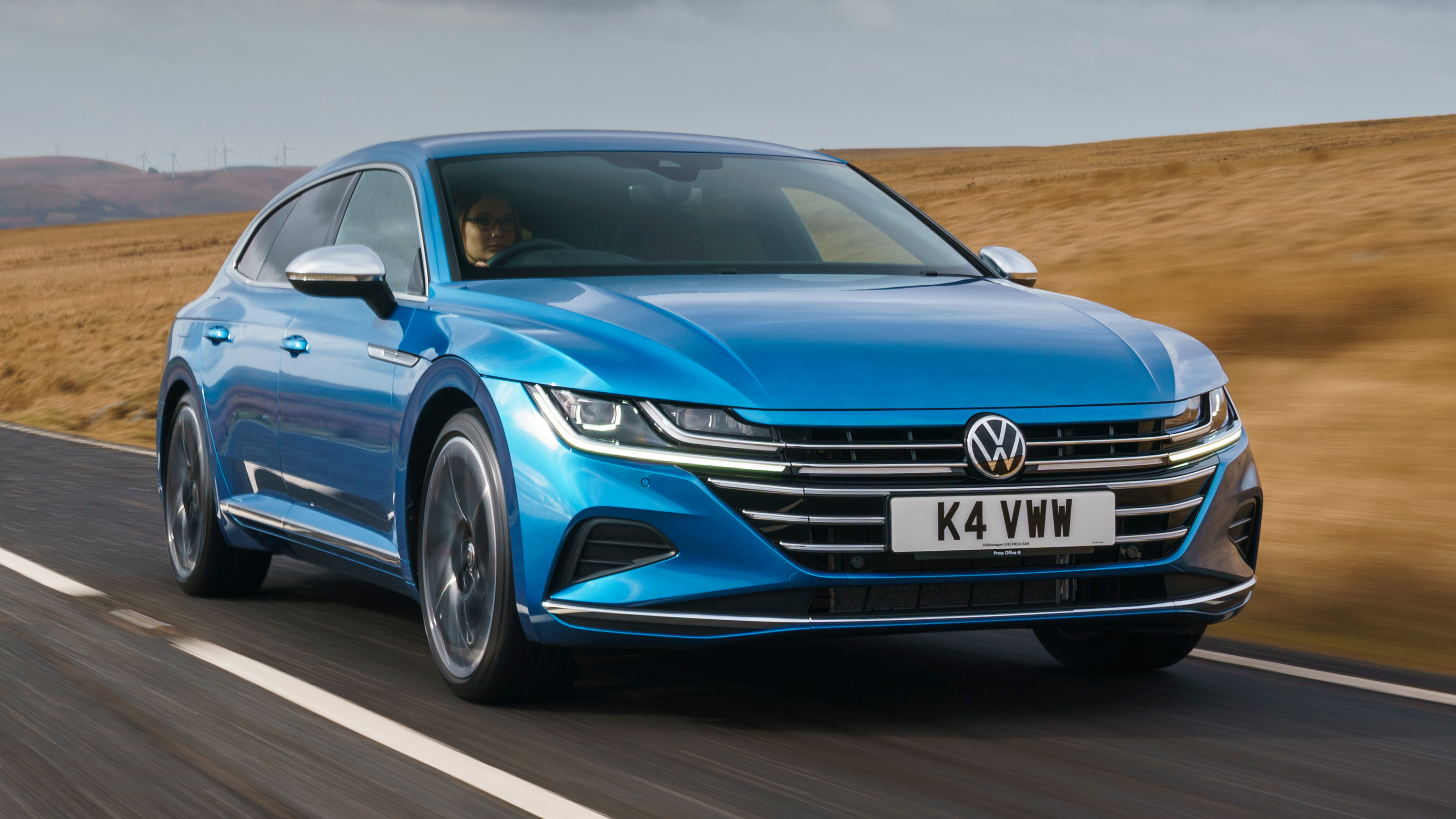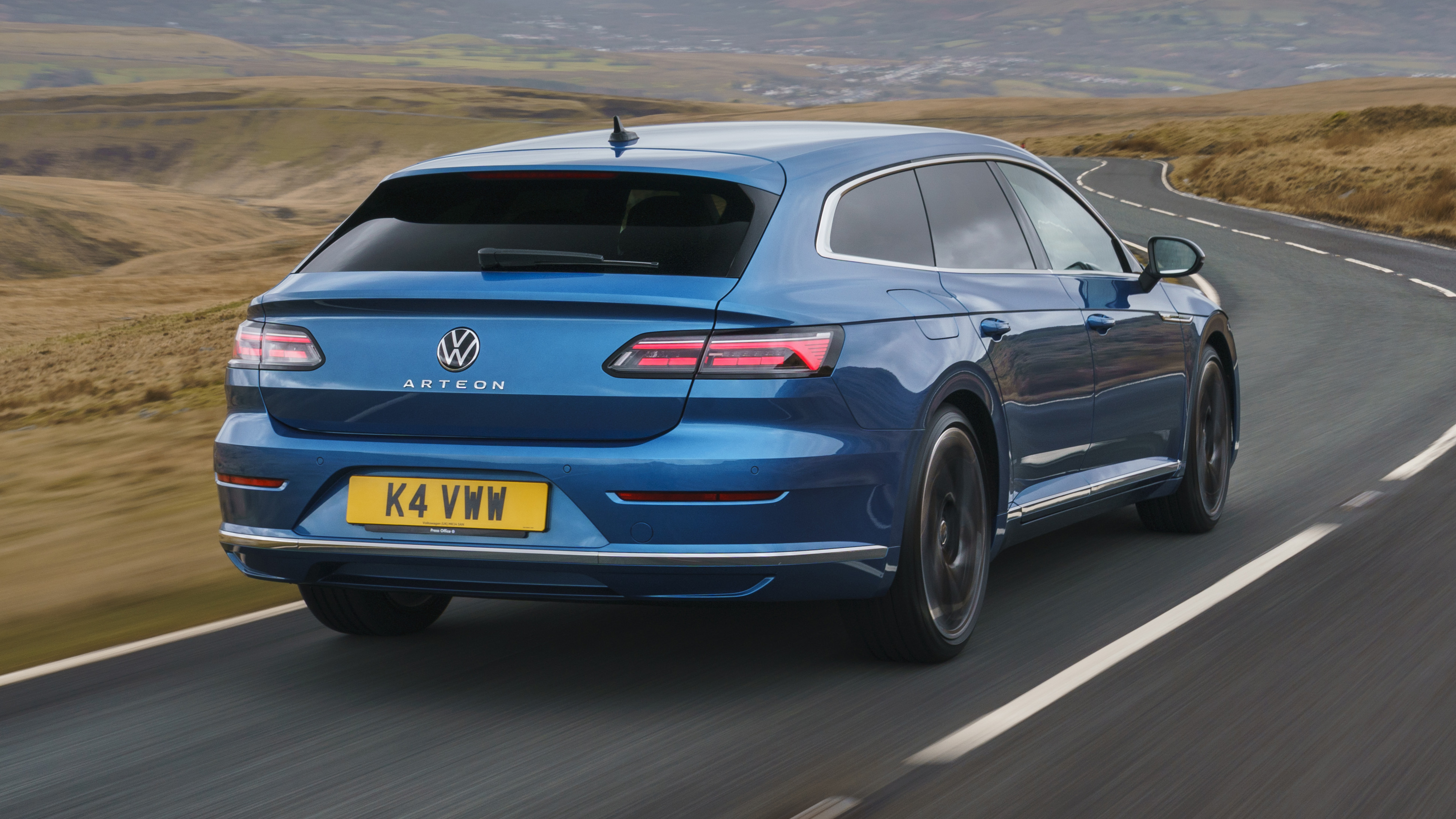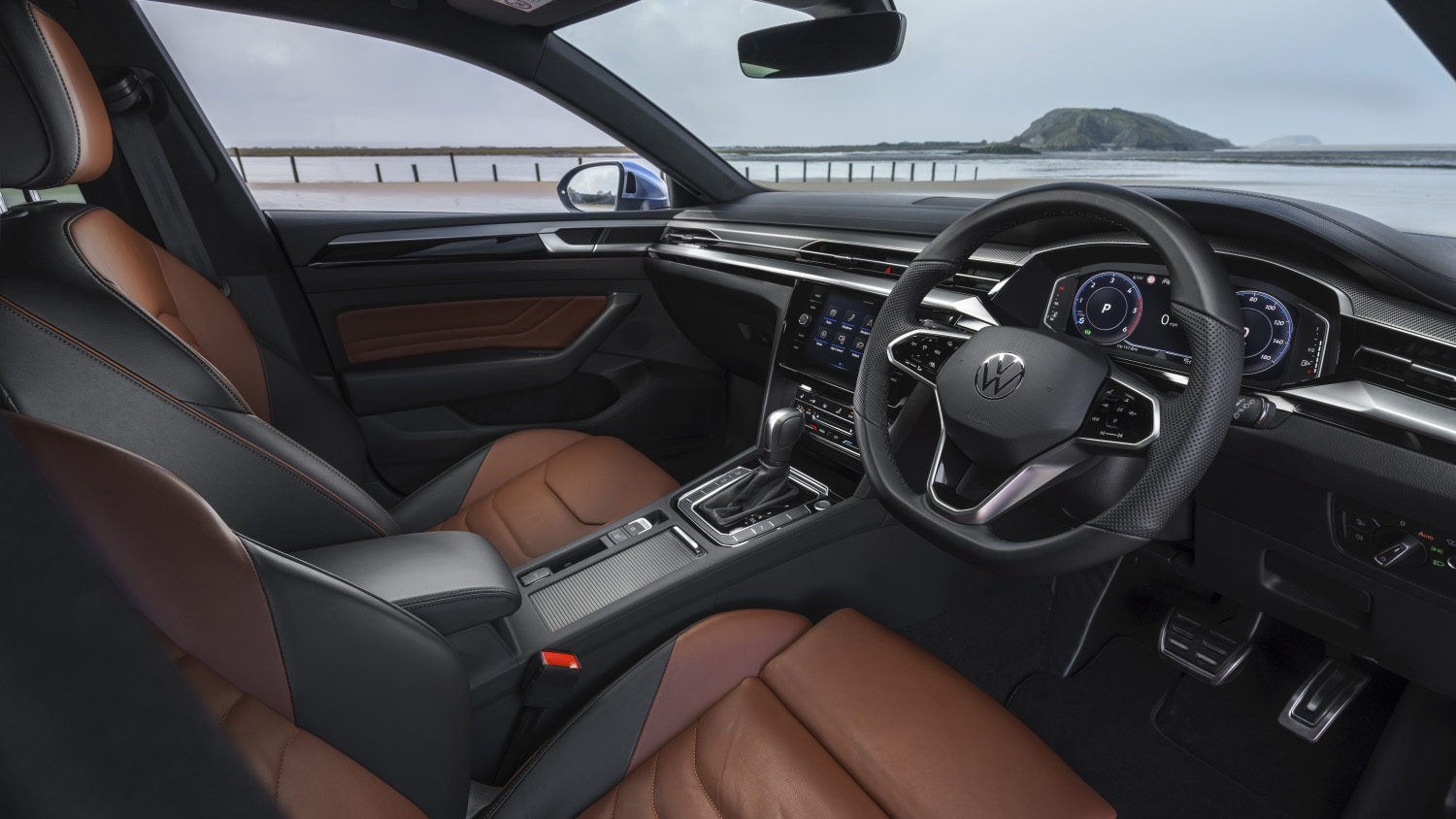
Volkswagen Arteon Shooting Brake review
Driving
What is it like to drive?
There’s nothing particularly prickly underneath this Arteon’s skin and that’s… absolutely fine. While handsome, the exterior isn’t festooned with vents and splitters, it’s not hunkered down on super stiff suspension and motorsport wheels. It’s even got a respectable number of exhausts.
Go on…
Which means it doesn’t actually have to handle like a BTCC car. It’s a more calming, relaxed affair, the Arteon’s softer suspension and less frenetic steering and handling setup more suited to chewing through a long-haul motorway trip rather than mastering Donington.
That smidge of delay between steering input and reaction; that extra ounce of suppleness in the ride; a small trace of body roll. None of which is a dealbreaker, but dialling it all back is part of the Arteon’s charm, and again, that’s quite alright. There’s much to be said for comfort and dependability. It’s an understated, quietly competent car.
Petrol, diesel, or plug-in hybrid?
We’ve tried the familiar 2.0-litre turbocharged four-cylinder petrol, the less powerful of the two available 2.0-litre diesels, plus the plug-in hybrid and rapid R versions.
The former gets 187bhp and 236lb ft of torque, which isn’t quite enough to make it sporting. 0-62mph takes eight seconds, which you might be compelled to label ‘leisurely’. And while that 4cyl rasps a little at the top end, it’s not a rocket launcher. But it is plenty quick enough for doing what it needs to do, which is propel you comfortably onto the motorway and keep you pinned at a respectable lick without drama. The seven-speed DSG is smooth and responsive, as you’d expect.
The diesel trades refinement and a bit of outright performance for range. Sure the tractor-y clatter (you can’t get away from it, no matter the car) sounds a bit incongruous coming from a sleek, handsome car like this, but so equipped the Arteon is hugely economical. After 600 mainly motorway miles at a near-60mpg average, we still had an indicated 200 miles of range left. See, diesel isn’t without its benefits…
We saw 33mpg from the petrol, though VW claims 35.6mpg WLTP, and it’ll emit between 128g/km and 180g/km (the latter figure for the 2.0-litre turbo).
And the PHEV?
The plug-in gets a 1.4-litre petrol engine mated to a 113bhp electric motor and 13kWh battery for a combined 215bhp and a claimed 38 miles of electric range. Like all PHEVs it starts in e-mode, then brings the engine into play as speeds climb, a transition that is almost unnoticeable.
Expect around 30 miles of range in the real world, plenty for the weekly school run or supermarket trip. This is the one to go for if you’re a company car driver: CO2 emissions of just 27g/km mean you’ll save thousands in BiK tax versus a petrol or diesel Arteon.
VW reckons on a charging time of five hours using a domestic three-pin plug, or around three and a half hours when using 3.6kW AC charger.
And how’s the R?
A natural, but slightly less talented, rival to BMW M340i xDrive Touring. That’s got the six cylinder power and chassis dynamics the Arteon craves. And to be honest, at £61,635, that’s the car we would point you at. The Arteon is undeniably better looking, but it only undercuts the BMW by £1,000, has a 60bhp shortfall, inferior handling and worse residuals.
That said, as heavy SUVs and electric cars continue to dominate, having a low to the ground, 1,780kg sporting estate isn’t without its charms. The R is swift, sure-footed and capable.
Featured

Trending this week
- Car Review
BMW iX3






